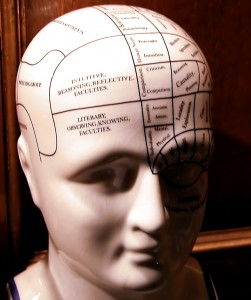 Look inward. The last frontier is our mind.
Look inward. The last frontier is our mind.
Neuroscientists, psychologists and other scientists are continually making and sharing new discoveries about the human brain. While we know substantially more than we did a decade ago, there’s much more to detect.
Like many Americans who have a “frontier mindset,” I enjoy exploring the new territory and thinking about how to use new brain knowledge to improve my self-knowledge.
“Know thyself” is the core of emotional intelligence, as Daniel Goleman wrote in his 1995 ground-breaking book, Emotional Intelligence: Why It Can Matter More than IQ.
Being self-aware means knowing your personality traits, feelings and behaviors. The more self-aware you are, the better you can manage yourself as well as your relationships with others.
Google engineer and personal growth pioneer Chade-Meng Tan took Goleman’s work and developed a mind-training method of mindfulness that became a course at Google University for its employees.
Tan’s 2012 book Search Inside Yourself: The Unexpected Path to Achieving Success, Happiness (and World Peace) is for the rest of us.
Both books are treasures. Goleman’s book redefined what it means to be smart, especially in organizations. Tan’s book serves as an instructional guide on “how to grow inner joy while succeeding at your work.” For those of us who implement strategic initiatives, we can benefit from both men’s teachings.
Neither book deals with technology.
Yet, the intersection of self-awareness and technology can benefit the layperson.
(Just don’t view the intersection as a crossroads in which you must choose one path over another, which is popular in folklore. If the devil is technology, you do have a choice of four roads to take at the crossroads, which means you improve your chances of choosing a road to escape its devilish clutches. But technology is awfully fast and powerful….and you need it as well as self-awareness.)
Apps and devices that help you track your daily actions provide useful data from which you can draw insights. Yes, big data is helpful for individuals, not just organizations.
Based on what you learn, you can adjust your behavior and change your habits.
For example, these three tools, which I’ve now been using for several months, have given me greater clarity about my behavior. As a result, I’ve made changes, which has improved my health and well-being.
1. Lift. This iPhone app is a simple way to help you stay focused on your goals and then track your progress toward achieving them. You also can get the support of your friends and others in the Lift community.
2. iDoneThis. This easy-to-use tool helps you—and your team members if you include them—pause to reflect on what you accomplished during the day. It helps you note accomplishments and share gratitude with others.
3. Fitbit. This activity tracker device, which you wear, measures your steps, distance and calories. Depending on the model, it also can track your sleep. The device, which is with you 24/7, motivates you to be more physically active as well as eat healthier and get enough sleep. You also can get support from friends, family and others in the Fitbit community.
Please note that I have no financial interest in any of these three tools. Nor can I guarantee they or other tools will work for you.
However, the self-knowledge gathered through self-tracking—which is the heart of the “quantified self” movement—can help you become more self-aware.
(For more about the quantified-self movement and its role in information overload, see Be like Goldilocks; find your “just right” amount to avoid info overload.)
What are you discovering as you explore this frontier?

0 Comments